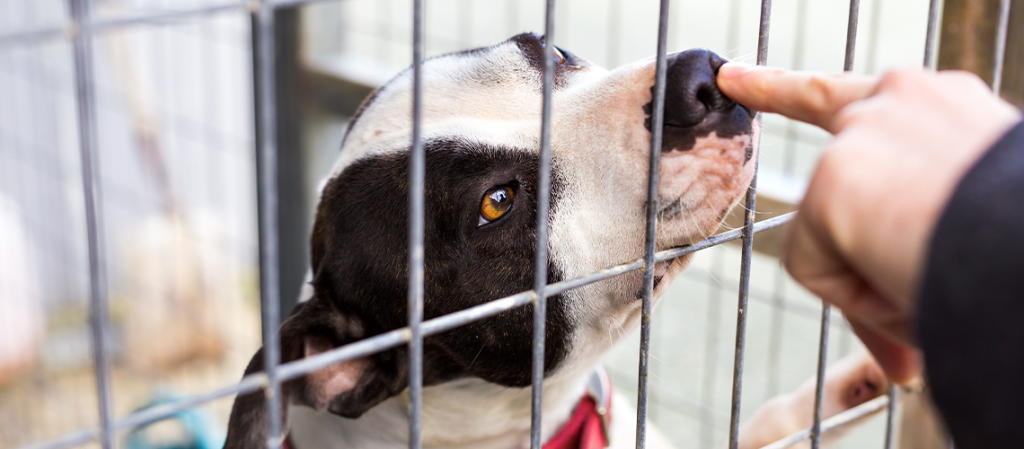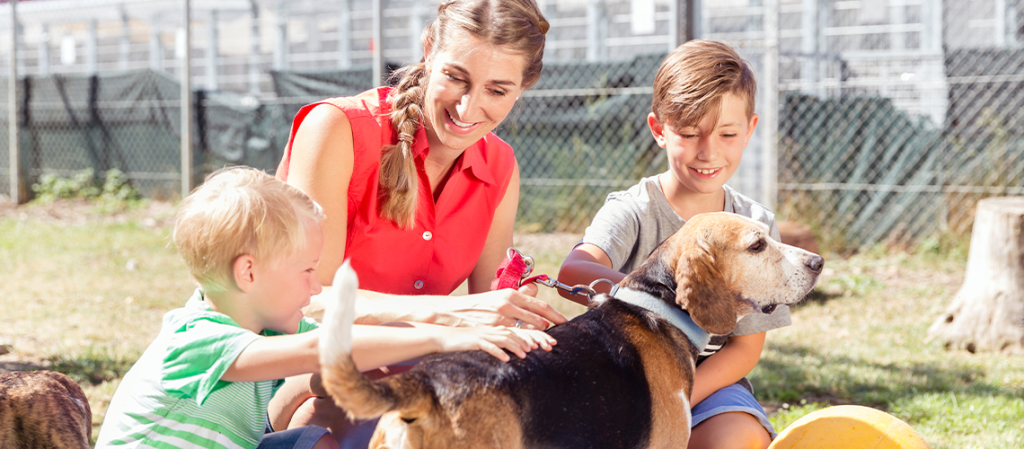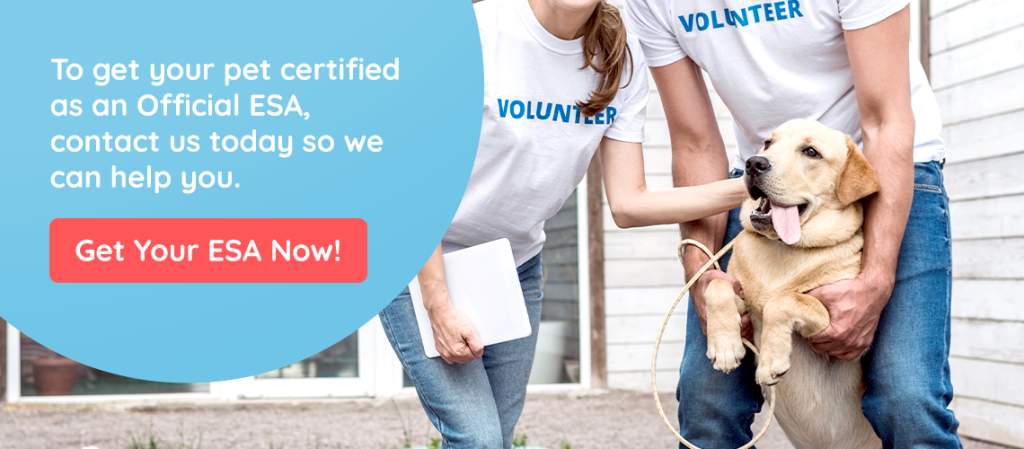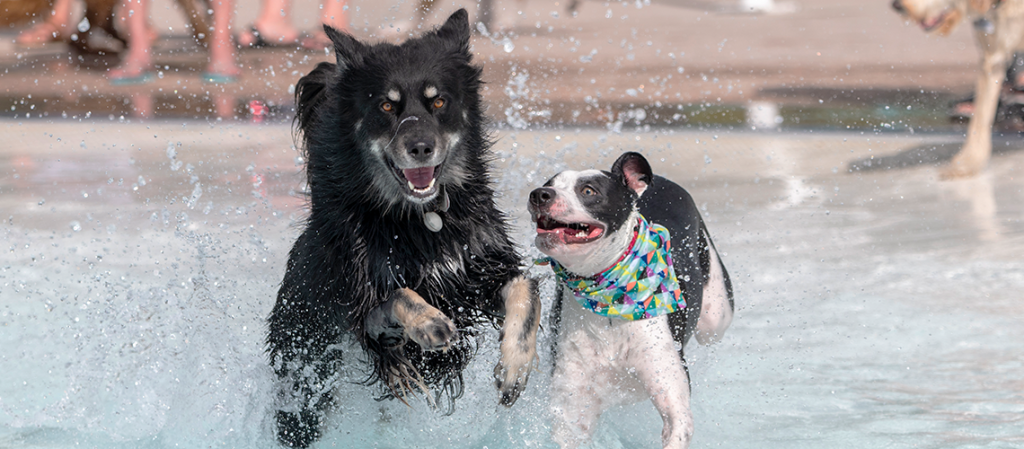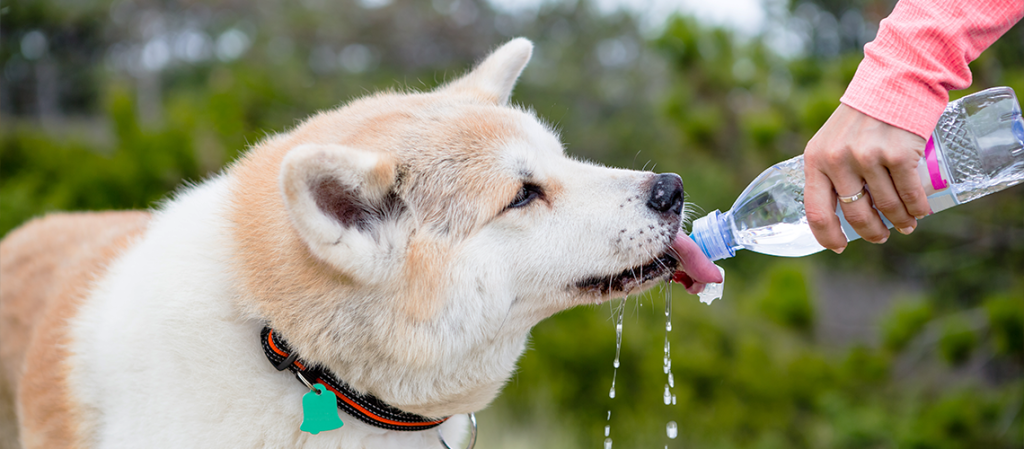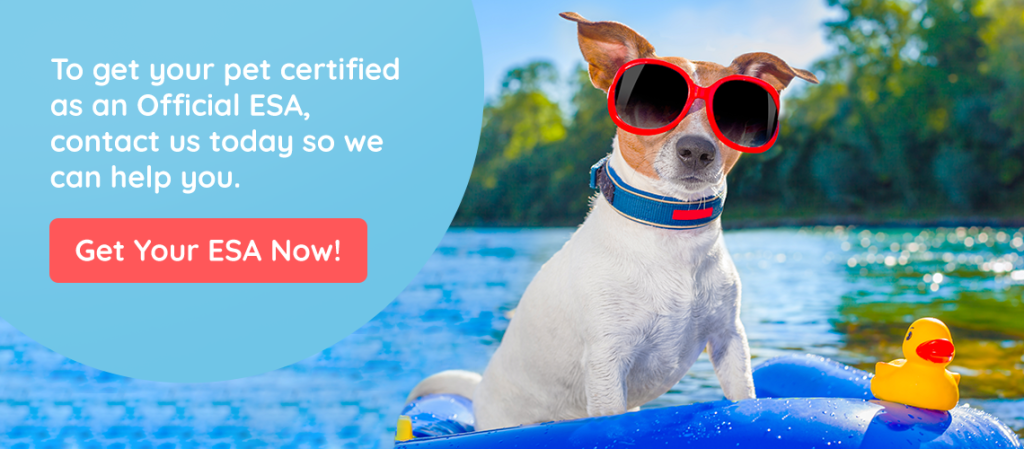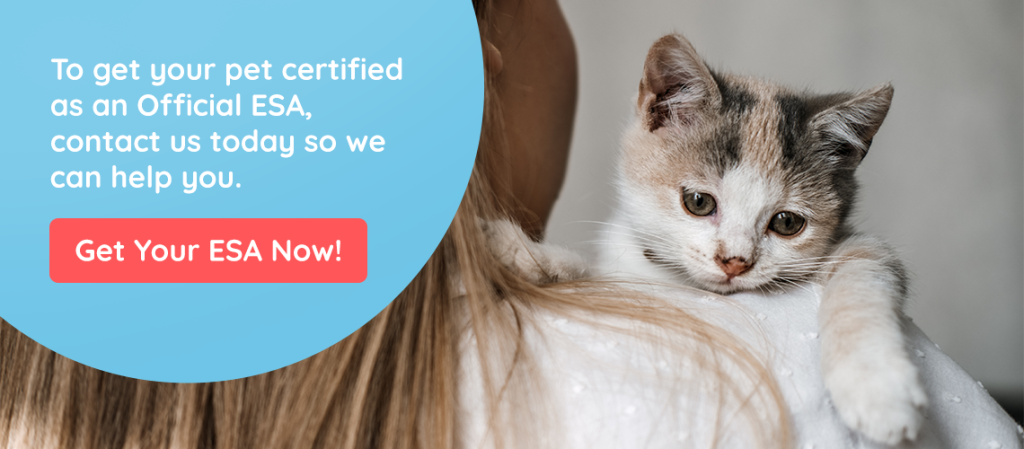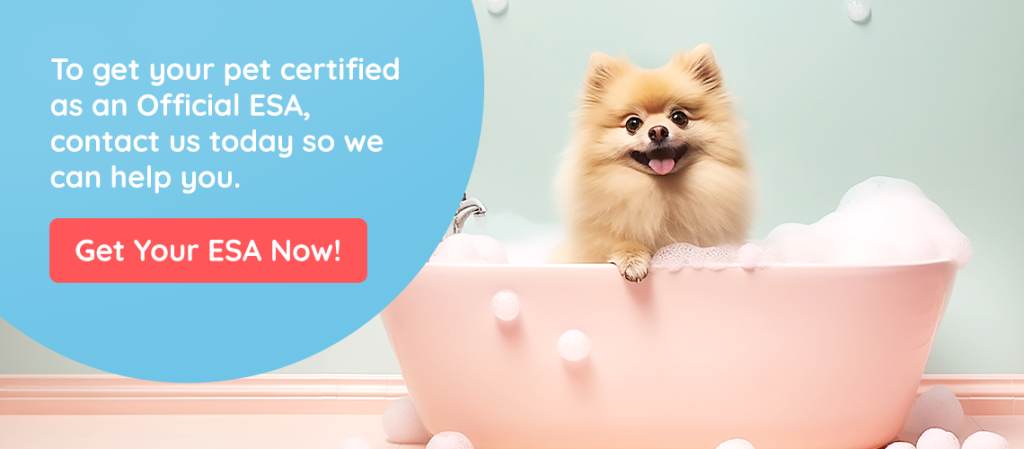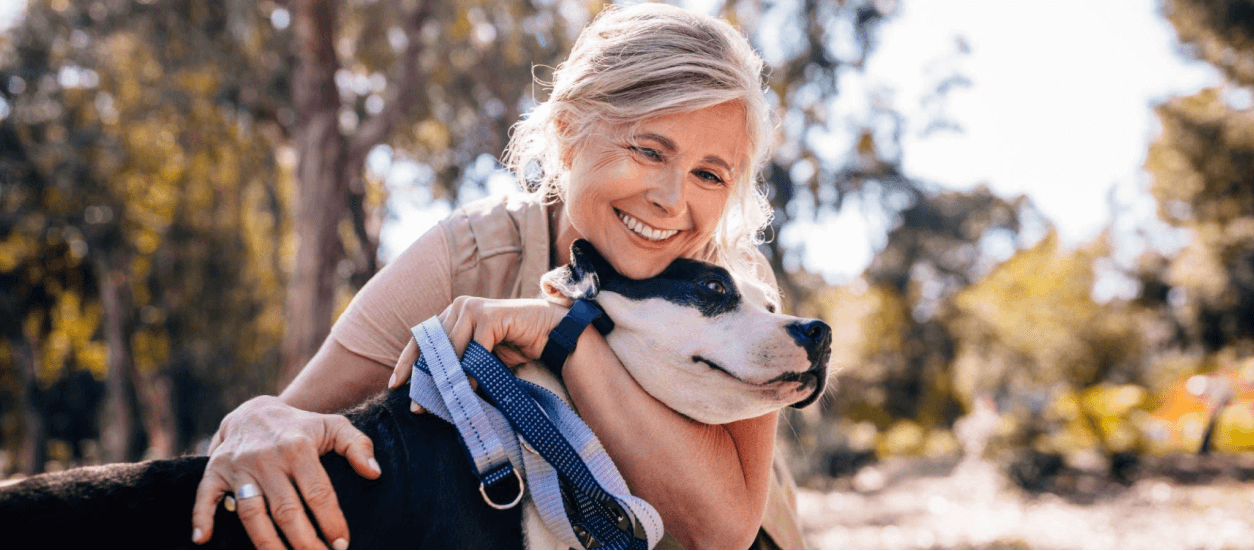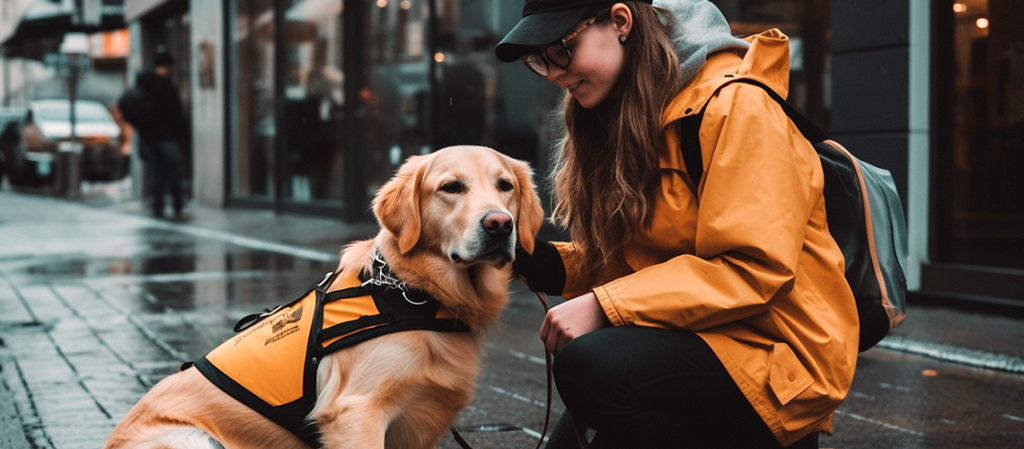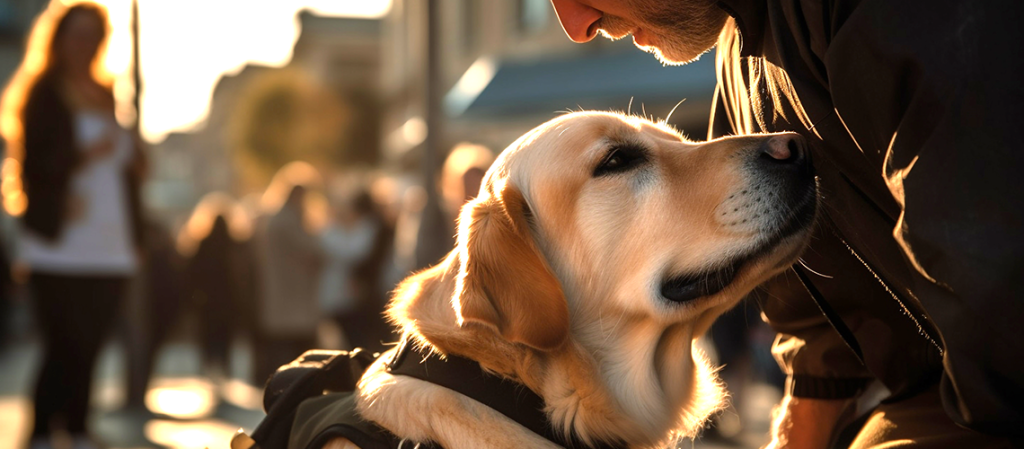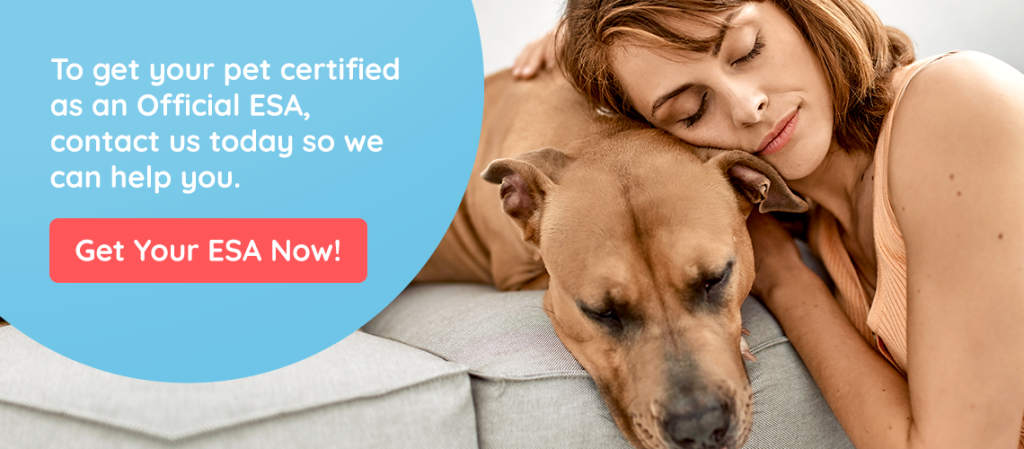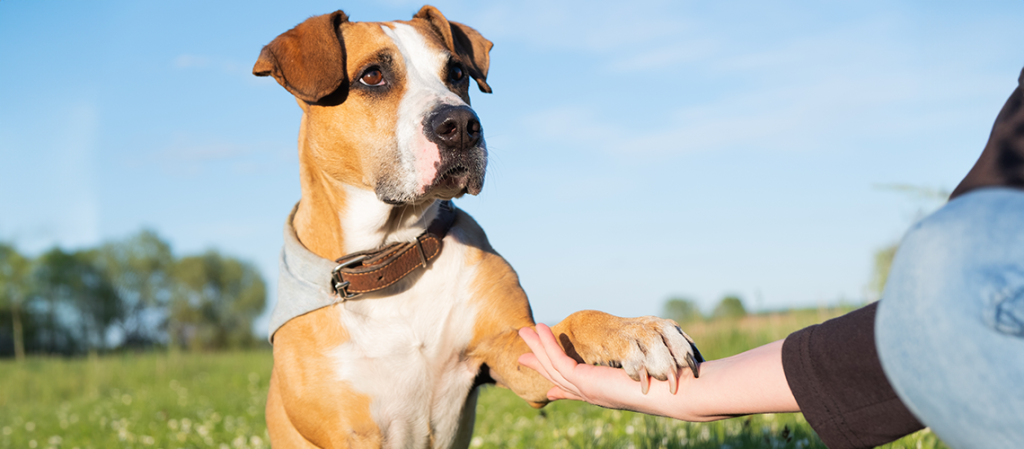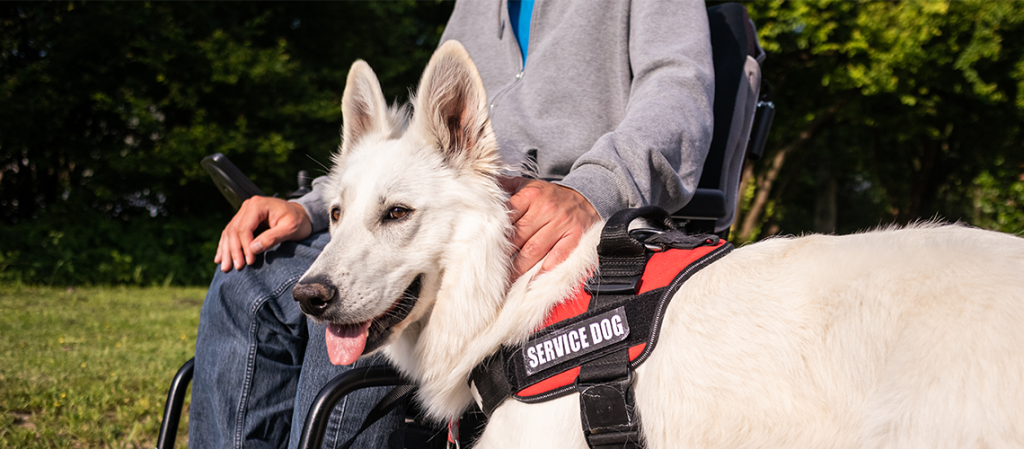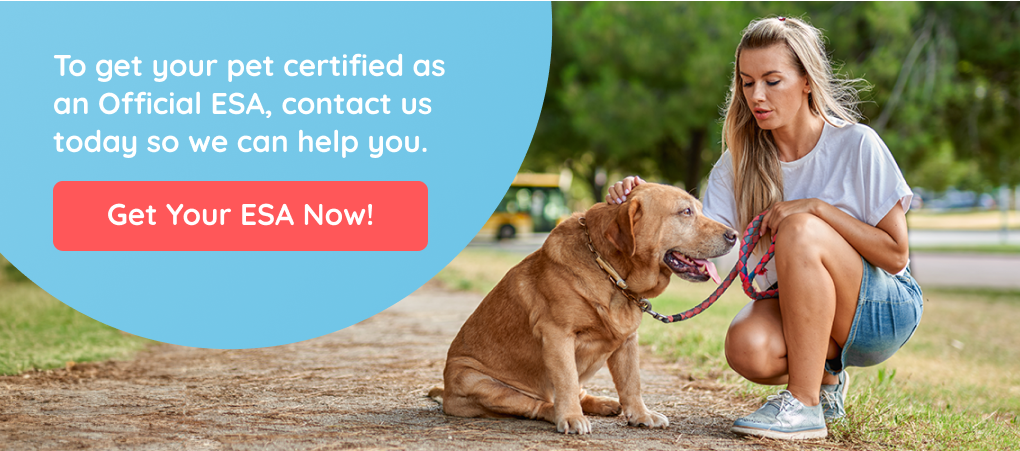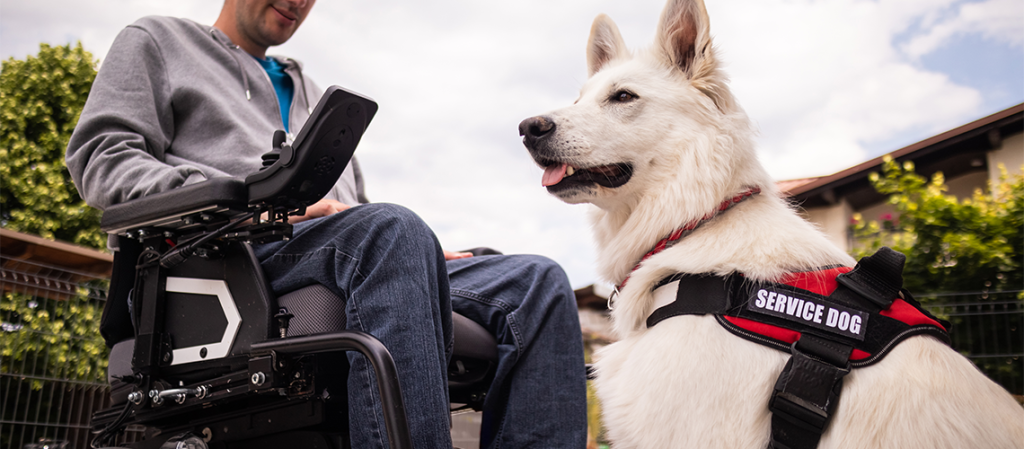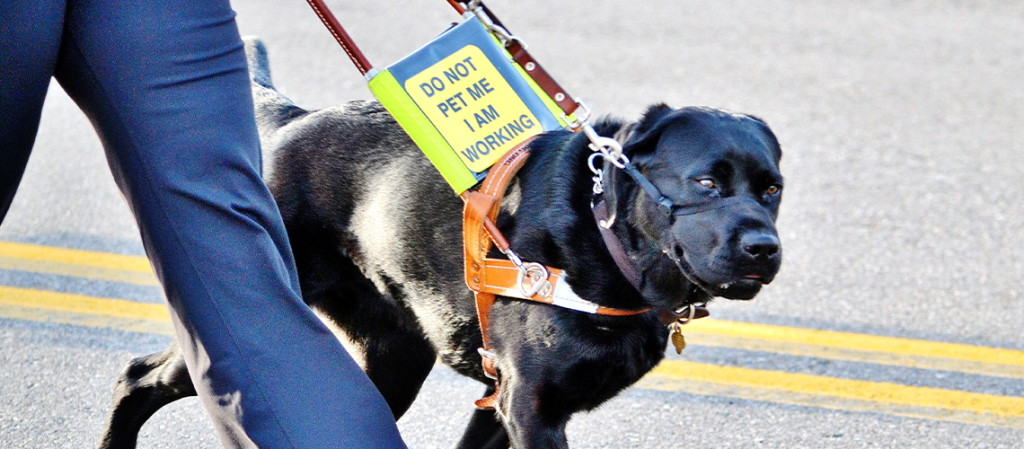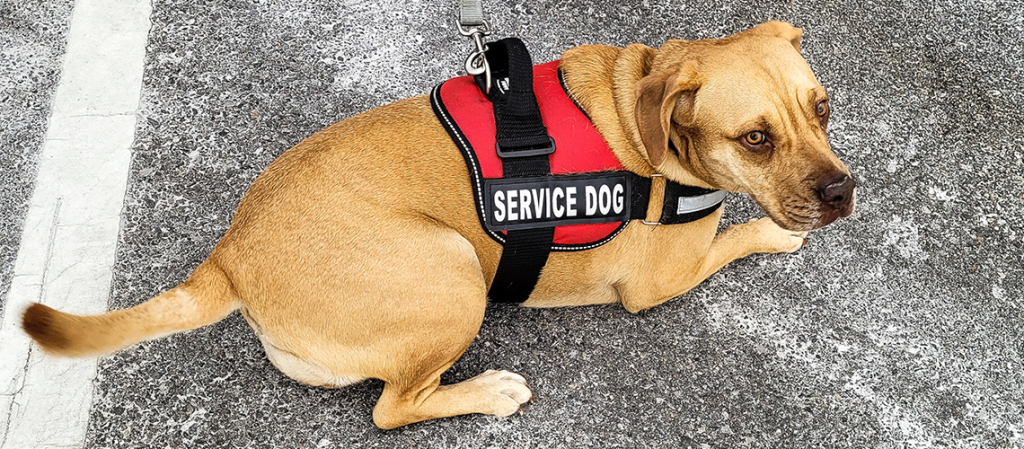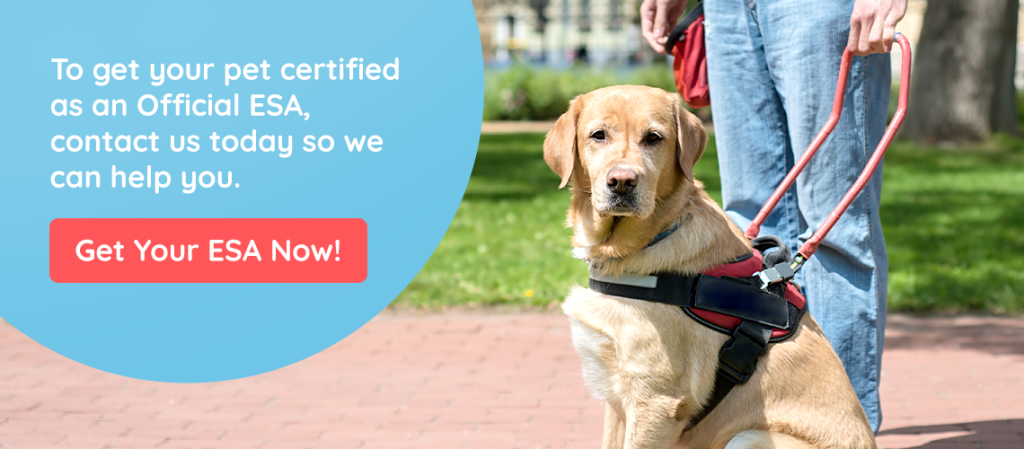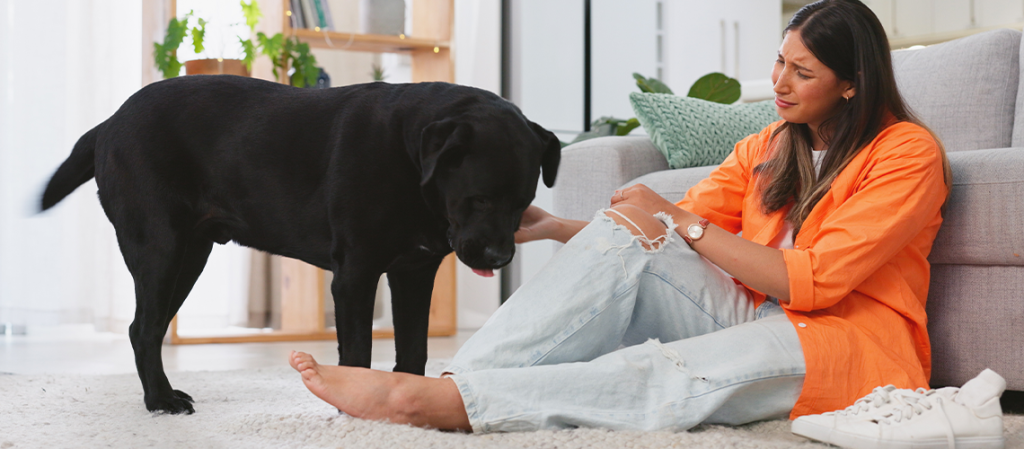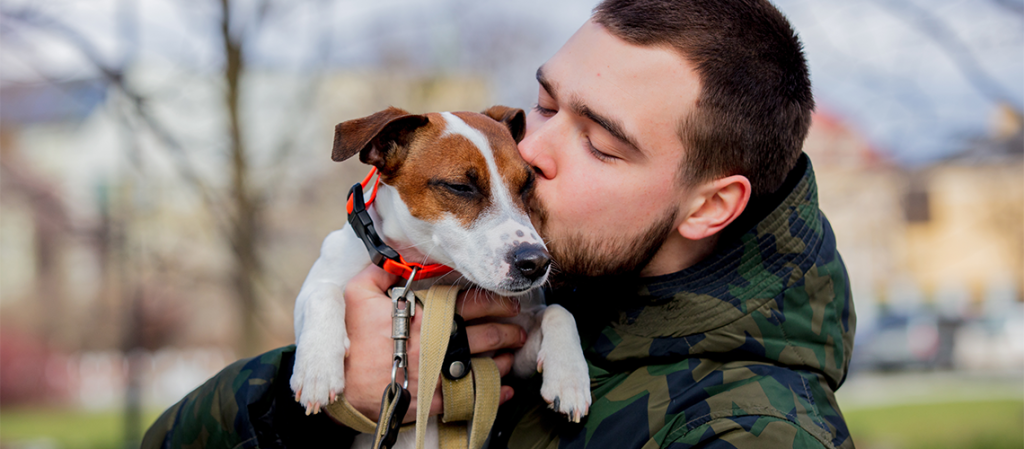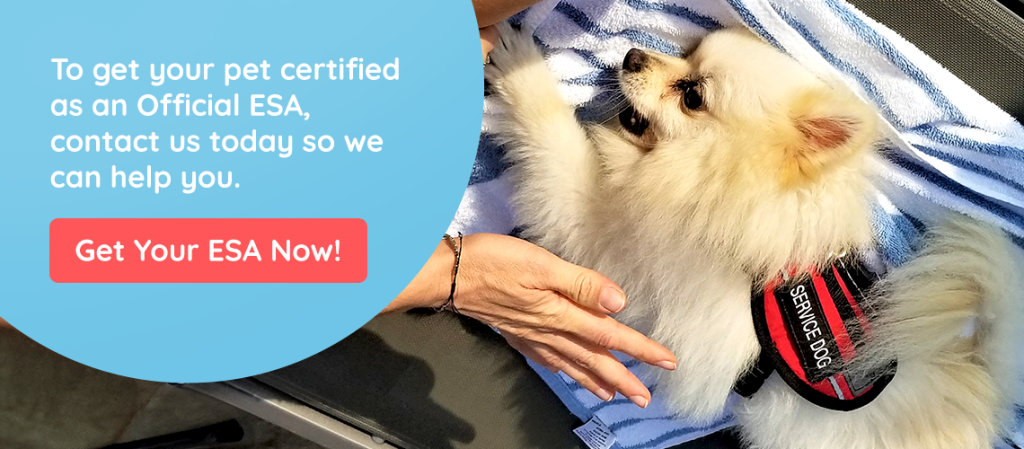Nevada: Nevada has a long-standing tradition of recognizing the irreplaceable value service dogs bring to their owners and society as a whole. To uphold this standard, all Nevada Service Dogs must be rigorously trained in obedience by certified professionals before they can accompany their handlers throughout the state. When it comes to Psychiatric Support Dogs, however, no specific rules or regulations exist – offering pet parents more freedom when it comes to best supporting an emotional companion animal’s needs!
New Hampshire: In New Hampshire, service dogs are expected to be obedient and attentive at all times. While the state does not require any specialized training for PSDs (Psychiatric Service Dogs), having a well-trained partner by your side is essential to ensure that both you and the canine remain safe during their joint excursions!
New Jersey: Service Dogs in New Jersey is more than just friendly faces! These pups aren’t allowed on the job until they’ve completed their training: mastering commands and learning specialized tasks to help people with disabilities. When out and about, these dogs must be under the full control of their handler at all times – no wild romps through parks or store aisles here! All this hard work pays off though; PSDs make life easier for those who need them most.
New Mexico: In the beautiful state of New Mexico, service dogs are expected to be as well-trained and obedient as an expertly choreographed dance routine! Not only that – these precious pups must also know how to perform tasks specifically tailored for their handlers to provide much-needed support. With such outstanding canine companions guiding them, PSD owners can feel confident knowing they have a furry friend who has got their back!
New York: New York State is serious about keeping service dogs safe and helpful! All PSDs must have proper obedience training, always be under the command of their handler, and even learn specific duties to assist. It’s a tall task that requires commitment from both pet parent and pup – but they’re up for the challenge!
North Carolina: Service dogs in North Carolina have got it made! Not only are they required to demonstrate obedience, but they also get the fortunate position of not having any particular laws or regulations regarding their training. While these pups must stay under control with their dedicated handlers at all times – there’s certainly some wiggle room when it comes to learning new tricks and following orders.
North Dakota: North Dakota is an animal lover’s paradise! Service dogs are welcomed and valued in the state, with a few important stipulations. Furry friends must be obediently trained to obey their handlers at all times – no exceptions here! In addition, there isn’t any specific legislation enforced when it comes to PSD training; however, owners should still ensure that their puppies get proper instruction so they can excel as well-mannered members of society.
Ohio: Service dogs in Ohio have a lot of responsibility on their furry little shoulders! Before they can accompany and assist their two-legged friends out and about, these hardworking pups need to earn some obedience stripes: mastering how to sit up tall when commanded, knowing not to pull at the leash while walking, etc. But that’s just the beginning–Ohio service pooches also must be specially trained for specific tasks like alerting handlers with health conditions before medical emergencies strike. Not only are pet parents proud – we bet that terrifically talented doggos beam from ear tip to ear tip too!
Oklahoma: Service dogs in Oklahoma aren’t just good boys and girls – they’re extraordinary! To ensure the utmost care is taken when it comes to their well-being, as well as that of those around them, pups must take obedience classes to stay on top of all their commands. Although there are no specific laws or regulations related to service dog training in this state, owners should make sure these furry friends know how best to protect themselves while helping out others.
Oregon: Oregon has some of the strictest regulations when it comes to service dogs; they need to be obedient and respond rapidly to their handler’s commands, as well as possess special training that allows them a wide range of tasks. In other words – these pups have got skills!
Pennsylvania: Service dogs in Pennsylvania are more than just pet companions – they have a job to do! To ensure public safety, service animals must undergo obedience training and maintain their handler’s authority at all times. All that hard work results in PSDs being allowed almost everywhere throughout the state – no special laws or regulations are needed for these furry heroes!
Rhode Island: In Rhode Island, service dogs lead an active lifestyle! Not only must they be obedient and attentive to their handler at all times, but the pooches are also required to undergo specialized training for them to perform specific functions for their human. From alerting a person who is hard of hearing when someone else speaks or helping those with impaired mobility stand from different positions – these noble canines certainly have quite an important role!
South Carolina: In South Carolina, service dogs need to be the epitome of well-behaved companions. Not only are they required to have completed formal obedience training and remain under their handler’s control at all times but there aren’t any special laws governing how these angels on four paws should receive their instruction!
South Dakota: If you’re looking for a service dog in South Dakota, it’s important to remember that obedience and control are key! There may not be any official regulations about their training down there, but ensuring your pup is on its best behavior can go a long way toward having an enjoyable experience with all the furry friends around.
Tennessee: Service dogs in Tennessee have their work cut out for them! They must be on their best behavior, always following the directions of their handlers. But that’s not all – these top-notch pooches also need to know how to perform specialized tasks like guiding a blind person or alerting people with hearing impairments. Thanks to rigorous obedience training requirements in this great state, Tennesseans can rest at ease knowing they are accompanied by an emotionally intelligent sidekick!
Texas: In Texas, service dogs are much more than just furry companions – they have an important job to do! All PSDs in the state must be trained not only in obedience but also perform specific tasks for their handlers. They’re always ready and under good control, so that Texans can depend on them when needed most.
Utah: Service dogs in Utah must attend school – obedience training, that is! These furry friends are expected to be on their best behavior and obey the commands of their owners. While there aren’t many laws or regulations governing PSDs specifically within this state, these smart pooches will still have to work hard for good grades.
Vermont: In Vermont, service dogs are no ordinary pooches – they must strut their stuff with an impressive list of skills! From sit to stay and right down the line, PSDs in the state have got obedience training on lock. But that’s not all – these special four-legged friends also need to be trained for specific tasks tailored just for their handlers. Talk about support pups!
Virginia: Virginia has stringent requirements for service dogs, mandating that they demonstrate exemplary obedience and are constantly attentive to their handlers’ commands. Not only do these PSDs need to be obedient, but must also have special training allowing them to perform specific tasks tailored around the individual needs of their companion.
Washington: Washington is home to some of the most dedicated and highly-trained service dogs around! Not only do these four-legged heroes have to pass a rigorous obedience course, but they also need expertise in specific tasks tailored just for their handler. What makes them so special? They’re always ready at a moment’s notice with an unwavering focus – talk about ultimate devotion!
West Virginia: In West Virginia, service dogs are the ultimate good boys and girls! They’re required to have a well-rounded obedience training education that teaches them how to stay under their handler’s control at all times. Even though there aren’t any specific laws or guidelines in place for PSD training, these pooches should still be prepared with plenty of manners when out on walks around town.
Wisconsin: Service dogs in Wisconsin are more than just loyal companions, they’re also highly trained professionals! These pups must have not only obedience training but special task-oriented instruction to help their handler with everyday tasks. And of course, these furry specialists need to be under the control of their human partners at all times – so no getting distracted by squirrels during work hours for them!
Wyoming: Service dogs in Wyoming must be obedient good boys and girls under their handlers’ watchful eyes! While there aren’t any specific state laws that pertain to the training of PSDs, ensuring these amazing pups are well-behaved is a must.
Conclusion:
Knowing your rights and the rights of your service animal, as well as relevant state laws regarding training can be a challenge – but you don’t have to face it alone! If you need legal advice about disability-related issues concerning Psychiatric Service Dogs (PSDs), look no further than the National Disability Rights Network. They specialize in helping people navigate their PSD’s training dilemma, so rest assured that help is available when navigating any potential misconceptions or confusion out there surrounding these amazing support animals.
With this information in your pocket, you can be confident knowing that your Service Dog is trained to the highest standards. This way they’ll easily become part of your life by providing all-around support and guidance! We’ve got a whole host of resources about our PSD program at supportpets.com so take a look for more info now!
